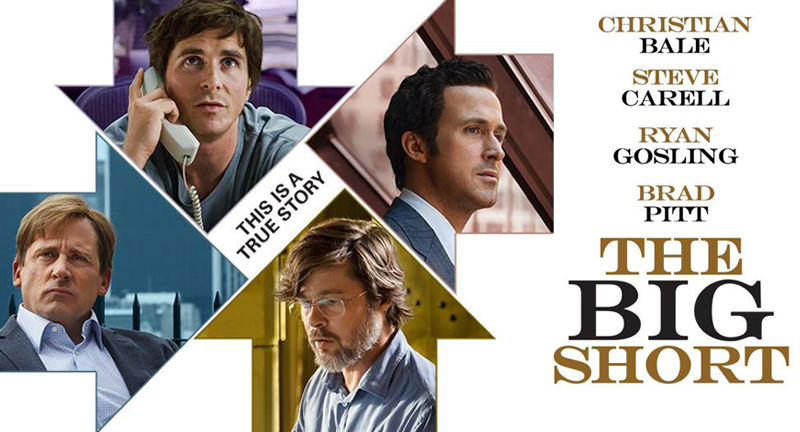Netflix can be a real wormhole – watch one film that you like, and all of a sudden you find yourself hours later still watching the recommendations, which just keep coming. I’m starting to think my Netflix is going to have a “Because your life is Netflix…..” (Only half kidding.)
Specifically, my obsession of late is the treasure trove of documentaries on Netflix – there are so many! While they can be hit or miss, there are a number regarding money, economics, and personal finance. I thought I’d share some of the ones I’ve enjoyed recently that you might want to check out.
The Big Short
The Big Short is actually a film, not a documentary, but the accuracy of its reporting of the historic events that led to the 2007 banking crisis has an A- rating from the Guardian, which is good enough for me.
What was an eye opener in this film is how much the optimism bias is a reality. Really smart people saw the pending economic crash, and nobody believed them. It makes you wonder if there were people watching and warning other economic crashes, and nobody listened.
Boom Bust Boom
This documentary, which features a cast of strange puppets in addition to the variety of economics experts, explains why capitalist economics always have booms and busts — and more importantly, tries to explain why we can’t seem to avoid the busts. It’s useful for you to know this when the next bust comes, because as explained in the film, there will be another.
Broke
We’ve all heard the stories of people who won the lottery, inherited a large sum of money, or became rich and famous — and ended up broke. Why can’t people hold onto money? Broke focuses on the stories of athletes, but the lessons on healthy money habits translate across many scenarios. (And if you don’t have Netflix, it appears ESPN is streaming a lower quality version on Youtube.)
Money for Nothing: Inside the Federal Reserve
What is the Federal Reserve? What do they do that has an effect on the economy? Why should you care? These are all questions answered in this insightful documentary. The focus is primarily on the decision making and policies of Alan Greenspan leading up to the 2007 crash (I wish they had documented a more lengthy history), but I feel like the understanding of the Federal Reserve in this context is very useful.
Freakonomics
Last but not least is Freakonomics – a documentary based on a popular book (that I enjoyed reading, and you might too) and that book even has a sequel, Superfreakonomics. The documentary highlights how the advice you get might not be the best advice, even if your advisors think they are acting in your best interest. In this case, the scenario in focus is to buy / not buy a house, but you can find the line of thought useful in ensuring you think out your decisions and make sure you research your facts when investing your money.
The accuracy of the statistics in this book/film have come under fire at times, and that’s the rub with statistics – there’s always an opportunity to find a flaw in them! Instead of focusing on the details, I suggest enjoying the thought process presented.

